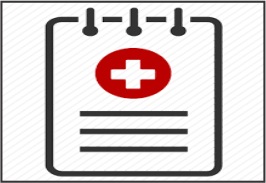| Type of medicine | Used for | Also known as | Available as |
|---|---|---|---|
| Chelating agent | Wilson's disease | Trientine dihydrochloride | Capsules |
Wilson's disease is a rare genetic disorder which affects only a limited number of people. It is a metabolic disorder which results in the build-up of copper in some parts of your body, particularly in your liver. These excess amounts of copper cause damage to the organs which are affected.
Wilson's disease is treatable. The aim of treatment is to remove the toxic levels of copper from your body, and then to prevent copper from re-accumulating. This is done by taking chelating medicines such as trientine which bind with the excess copper to form complexes which your body can remove. You may be given other medicines alongside trientine which will help to prevent copper being absorbed from the food you eat.
Some medicines are not suitable for people with certain conditions, and sometimes a medicine may only be used if extra care is taken. For these reasons, before you start taking trientine it is important that your doctor or pharmacist knows:
• If you are pregnant, trying for a baby or breastfeeding.
• If you are taking any other medicines. This includes any medicines you are taking which are available to buy without a prescription, as well as herbal and complementary medicines.
• If you have ever had an allergic reaction to a medicine.
• Before you start this treatment, read the manufacturer's printed information leaflet from inside your pack. The leaflet will give you more information about trientine capsules and a complete list of side-effects which you may experience from taking them.
• Your doctor or pharmacist will tell you how many capsules to take and when to take them. As a guide, a usual dose for an adult is 4-8 capsules a day, taken divided into 2-4 doses. The dose for children is lower than this and depends upon their age and how they respond to the treatment. The dose will be printed on the label of your pack to remind you - take trientine exactly as your doctor says.
• You should take the capsules 30-60 minutes before a meal. Try to take your doses at the same times each day, as this will help you to remember to take them.
• It is important that you do not take indigestion remedies or any medicines containing iron or zinc at the same time as trientine. If you need to take either of these types of medicines, you should take them two hours before you are due to take trientine, or wait until two hours afterwards.
• If you forget to take a dose, take it as soon as you remember (unless it is nearly time for your next dose, in which case leave out the missed dose). Do not take two doses together to make up for a forgotten dose.
• Try to keep your regular appointments with your doctor and clinic. This is so your progress can be checked. You will need to be followed up by a specialist doctor and have regular blood tests.
• Follow carefully any advice you have been given about what food or drink to avoid. It is likely that you will be advised to avoid drinking alcohol (because it increases the risk of damage to your liver) and also to avoid foods which are high in copper, such as liver, chocolate, nuts, mushrooms, legumes and shellfish.
• Treatment for Wilson's disease is lifelong. It is important that you continue to take your medicines even if you feel well and are free from symptoms.
• If you are due to have an operation or any dental treatment, tell the person carrying out the treatment which medicines you are taking.
• If you buy any medicines, check with a pharmacist that they are safe to take with your other medicines.
Along with their useful effects, all medicines can cause unwanted side-effects although not everyone experiences them. The table below lists some of the most common ones associated with trientine. You will find a full list in the manufacturer's information leaflet supplied with your medicine. The unwanted effects often improve over the first few days of taking a new medicine, but speak with your doctor or pharmacist if any of the following side-effects continue or become troublesome.
| Trientine side-effects | TrientinWhat can I do if I experience this? |
|---|---|
| Feeling sick | Stick to simple foods. This should settle as your body adjusts |
| Skin rash | If this becomes severe or troublesome, let your doctor know |
• Speak to your doctor if you experience stomach pain or diarrhoea that doesn't go away.
• If you experience any other symptoms which you think may be due to this medicine, speak with your doctor or pharmacist.
• Keep all medicines out of the reach and sight of children.
• Store in the original container in a refrigerator (2-8°C). Do not allow the capsules to freeze.
• Use within three months of first opening and do not use if the capsules become sticky or wet.

29 Aug 2018
Complete Prescribing Information for Trientine as a printable PDF...

10 Sept 2018
Get answers to questions about how Trientine works, and more...
“Treatment of patients with Trientine Hydrochloride Capsules may be complicated by severe, sometimes lifethreatening, adverse effects. Trientine Hydrochloride Capsules should be administered under the supervision of a physician experienced in the use of this medication for the treatment of sickle cell anemia.”
“Hydroxyurea is mutagenic and clastogenic, and causes cellular transformation to a tumorigenic phenotype. Hydroxyurea is thus unequivocally genotoxic and a presumed transspecies carcinogen which implies a carcinogenic risk to humans. In patients receiving long-term hydroxyurea for myeloproliferative disorders, such as polycythemia vera and thrombocythemia, secondary leukaemia’s have been reported. It is unknown whether this leukemogenic effect is secondary to hydroxyurea or is associated with the patient's underlying disease. The physician and patient must very carefully consider the potential benefits of Trientine Hydrochloride Capsules relative to the undefined risk of developing secondary malignancies. Trientine Hydrochloride Capsules is used to treat chronic myeloid leukaemia or cervical cancer.”
“Your medical team will discuss with you the options for treating your cancer. They will take into account factors such as the type of cancer, where it is, which stage it is at and whether you have had treatment before. The results of blood tests and other investigations will also be considered. How well you feel and how you are likely to cope with treatment is also important.”
“Your cancer treatment will usually consist of a treatment session with Trientine Hydrochloride Capsules followed by a break of a number of days before the next treatment session with Trientine Hydrochloride Capsules. This cycle may be repeated many times as part of your cancer treatment. Trientine Hydrochloride Capsules works by damaging cancer cells in the body. Trientine Hydrochloride Capsules also affects healthy cells and treatment with Trientine Hydrochloride Capsules may damage your immune system. Your medical team may arrange for you to have some blood tests to check how well your immune system is working. Do not share your medicine with other people. It may not be suitable for them and may harm them. The pharmacy label on your medicine tells you how much medicine you should take. It also tells you how often you should take your medicine. This is the dose that you and your prescriber have agreed you should take. You should not change the dose of your medicine unless you are told to do so by your prescriber. If you feel that the medicine is making you unwell or you do not think it is working, then talk to your prescriber.